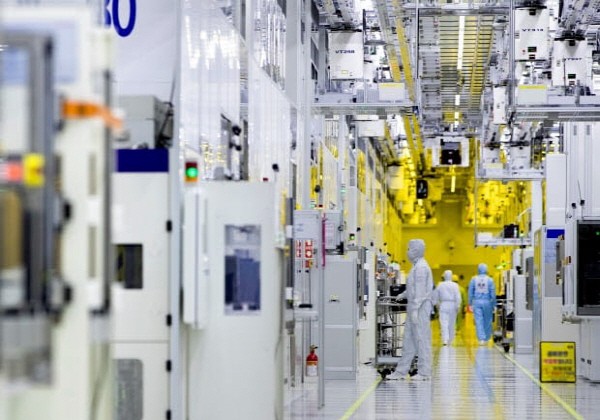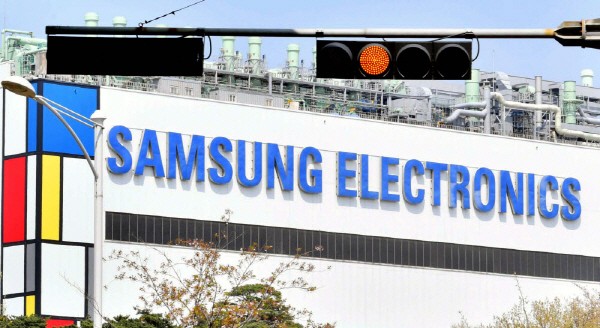2Q sales 22.7 trillion, operating profit 6.9 trillion
Explosive memory demand... great results achieved
Intel to invest heavily in foundries
Concerns over “Samsung’s leadership vacuum”

Samsung Electronics overtook Intel and become the world's no. 1 semiconductor company, first time to successfully retake the 'Semiconductor Throne' since the semiconductor super cycle from 2017 to 2018. Despite the prospect that Samsung Electronics' status will be solid for a while due to the boom in memory semiconductors, there are also voices of concern. This is because the ranking can change at any time as Intel starts a rapid investment with a focus on semiconductor consignment production (foundry). It is analyzed that the outcome of the direct confrontation between Samsung and Intel, which seek to become the world's best integrated semiconductor company, depends on investment.
According to the industry on the 2nd, Samsung Electronics surpassed Intel in both sales and operating profit in 2Q to become the first place in the global semiconductor market.
Its semiconductor division recorded 22.74 trillion won in sales and 6.93 trillion won in operating profit respectively, while Intel's sales were 22.54 trillion won (US$19.6 billion) and operating profit was 6.3 trillion won (US$5.546 billion)during the same period. As a result, Samsung reclaimed the semiconductor throne handed over to Intel for the first time in 10 quarters since the fourth quarter of 2018.
Samsung Electronics' semiconductor business achieved great results as the demand for memory centered on servers and PCs exploded due to increased demand for virtual and remote work with the COVID-19 pandemic. Memory shipments exceeded industry estimates and DRAM and NAND also contributed significantly to sales and operating profit growth with high prices. In particular, the successful cost reduction by increasing the proportion of advanced processes also had a positive effect on earnings improvement.
The Wall Street Journal (WSJ) analyzed, "That the cost of memory semiconductors is much lower than that of manufacturing non-memory semiconductors, Intel's main business, seems to have contributed to the surge in sales of Samsung Electronics."
Samsung Electronics' status in the global semiconductor market is expected to remain for the time being. It has an edge over Intel in terms of semiconductor production capacity. In addition, the short-term forecast that the memory market growth will outpace Intel's flagship central processing unit (CPU) plays favorably for Samsung Electronics. Market research firm Gartner projects that global memory sales will increase 33% this year, but CPUs will only grow 4%.
However, from a long-term perspective, Samsung Electronics' continued position as the semiconductor throne is not easy. This is because Intel is chasing Samsung Electronics in production capacity while making large-scale aggressive investments since it announced that it would re-enter the foundry market in March.
A key example is the announcement of the construction of a 'mega fab', a very large foundry plant in the U.S. and Europe. Intel's investment is in the tens of billions of dollars, and it is known that a significant portion has already been executed. Intel has also secured large customers such as Qualcomm and Amazon.
The industry expects Intel's large-scale investment to shine as early as 2023, when Intel Foundry will start to operate in full-scale. Production of Qualcomm chips is also planned in 2024.
A semiconductor industry official said, "Intel's pursuit of foundries seems to be aimed at Samsung Electronics, which is second in market share, rather than Taiwan's TSMC, which has the largest market share. Samsung Electronics is 'sandwiched' between TSMC and Intel in the foundry market.”

On the other hand, Samsung Electronics is hesitant to invest. Although it has announced that it will make large investments in the U.S., it will take time for the plan to materialize and turn into action due to a leadership vacuum rather than a lack of investment funds. This means Samsung has limits to rapid decision-making for investment. As of the end of the 1Q of last year, Samsung Electronics had more than 200 trillion won in cash.
Ultimately, the keyword in the battle for the throne in the global semiconductor market will be 'investment'. The WSJ analyzed that the investment amount of a company will determine the number one position in the future, and that Samsung Electronics and Intel will engage in a 'final showdown' over investment.
By Dong-jun Kwon, staff reporter djkwon@etnews.com